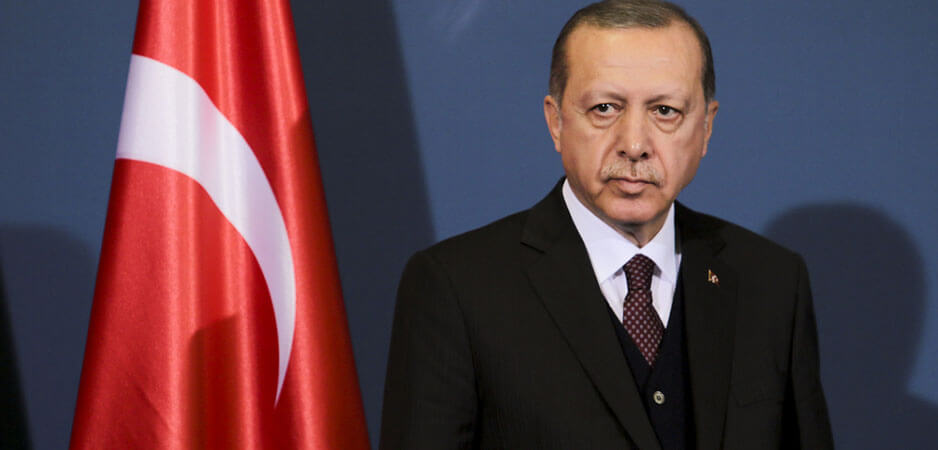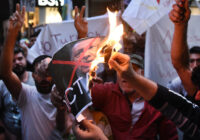President Erdogan’s snap poll reinvigorates Turkish politics in unexpected ways.
Turkey’s President Recep Tayyip Erdogan is a master at outflanking his political opponents. Despite rumors that an early general election would be called, no one expected it to be quite so last minute. On June 24, Turkey will go to the polls in a watershed vote that will — so the script goes — see Erdogan consolidate his grip on a new executive presidency in a transformed political landscape.
Once again, President Erdogan has showed himself to be a politician who goes with his gut and trusts in the enduring appeal of his persona among the bedrock of conservative support in the Anatolian heartland. He has also showed that he is a man unafraid to take the risks needed to keep winning in politics.
When the army — the old guardian of the secular order — threatened another “postmodern” coup in the face of Abdullah Gul’s appointment to the presidency in 2007, then-Prime Minister Erdogan called their bluff by letting the electorate decide in snap polls. When support for this ruling Justice and Development Party (AKP) wilted in 2015, he shunned coalitions and called another poll that brought the AKP back as a majority-ruling party.
Erdogan has also been as ruthless in his alliances. Since coming to office in 2002, he has engaged in talks with Abdullah Ocalan, the imprisoned leader of the outlawed Kurdistan Workers’ Party (PKK), on settling the Kurdish issue, sidelined major allies within his own party such as Gul and former Prime Minister Ahmet Davutoglu, and subsequently formed an alliance with Devlet Bahceli, leader of the far-right Nationalist Movement Party (MHP).
Such a track record suggests a man who knows when to make his move, and yet this latest gamble has created one of the most unlikely of outcomes even before the poll has occurred: It has triggered a creative and potentially transformative reaction from the long moribund main opposition, the Republican People’s Party (CHP).
Signs of fight in the opposition
Much analysis of Turkish politics over the past two decades has been increasingly obsessed with the figure of President Erdogan and his effect on the nation — almost to the exclusion of all else. Whether supporters or detractors, he is held up as the wellspring for all. Yet this simple act of adulation or vilification obscures much of the reality.
The success of the AKP has been meteoric. It has galvanized not simply a pious conservative base, but a vast hinterland of voters who felt unrepresented by the traditional secular elite and who saw opportunity — economic and otherwise — in the rise of the AKP. The party also arrived at a moment when the ability of the traditional establishment to maintain power with military force, if necessary, was waning.
Yet despite its evident success, the AKP has also succeeded against a stagnant main opposition. Since 2002, the electoral share of the CHP has remained largely static at between 20 to 25%. It has a solid constituency among the secular, Kemalist populations of Thrace, the Aegean seaboard and certain metropolitan areas (as well as religious minority groups such as the Alevi), yet it has made no significant inroad into other constituencies.
The principle threat that the AKP has had to calculate in elections has been from the two smaller opposition blocs: the far-right nationalist MHP and the party backing Kurdish aspirations, currently the Peoples’ Democratic Party (HDP). This is where AKP votes have been taken. But an unprecedented move by the CHP on April 22 to offer 15 of its members of parliament to the newly-formed Iyi Party has thrown potential new life into the contest.
Pretender to the throne
The Iyi Party was formed by Meral Aksener, a conservative politician from the far-right MHP who split with the party over its alliance with President Erdogan and has now gone on the offensive with her own bid for the presidency. The technicalities of electoral law meant that her party needed the parliamentary representation offered by the CHP in order to qualify for the June 24 poll.
That such support has been offered is not completely unthinkable. The notion that the CHP must create alliances with more conservative politicians has been tried before. At the presidential election of 2014, then-Prime Minister Erdogan was challenged by Ekmeleddin Ihsanoglu, a conservative academic who stood as the joint candidate of the CHP and the MHP.
With her pious persona and strong nationalist credentials, Aksener is seen as a genuine challenger to Erdogan. It has even been suggested that she was the reason for the decision to call snap elections on June 24, so quickly that her Iyi Party would be disqualified from standing. Yet she is not of President Erdogan’s stature and, crucially, her party is nationalist but secular in orientation. Most of Erdogan’s base would still be wary of her.
This is where the CHP has been truly audacious. The party that has consistently failed to offer a new vision of a way forward has been planting rumors of its ability to lend a hand in resurrecting an earlier AKP vision. The whispers are that former President Gul — a more moderate AKP founder member and one of the few politicians who could challenge President Erdogan — has been approached to stand as an alternative candidate.
Any port in a storm
Nothing could be more ironic. Abdullah Gul — the man the CHP, with support from the military, attempted to thwart from taking the presidency partly due to the headscarf his wife wears. Such is the surreal nature of Turkish politics. Yet it is just the kind of bold thinking that could make the CHP relevant once more.
The hard truth is that with the dawn of the 21th century and the delegitimizing of the military as an arm of government in Turkey, the CHP was not ready for genuinely democratic politics. When parties from an Islamist base had gained support and power in the past, the military had simply stopped them when it got too much for the establishment. As that threat receded, so did the ability of the traditional secular parties to get into government.
Much of the domestic turmoil in Turkey over the past five years has been the result of feuding within the conservative political landscape — whether rifts between leaders within the AKP, the collapse of the tacit alliance between the AKP and Fethullah Gulen’s Hizmet movement, or the new emergence of Aksener as a conservative rival to President Erdogan.
The fact that the CHP has even been mooted to be making a move that could shake up these equations is a startling turnaround that bodes well for Turkish politics. President Erdogan could even consider taking the credit for this reinvigoration. With his track record, you would still get very long odds on his not retaining the presidency. Yet the array of opponents he has now amassed — from the secular opposition to alienated Kurds and Gulenists and even elements of the conservative base — could make this one of the most unpredictable polls in recent Turkish history.
The views expressed in this article are the author’s own and do not necessarily reflect Fair Observer’s editorial policy.
Photo Credit: Sasa Dzambic Photography / Shutterstock.com
Support Fair Observer
We rely on your support for our independence, diversity and quality.
For more than 10 years, Fair Observer has been free, fair and independent. No billionaire owns us, no advertisers control us. We are a reader-supported nonprofit. Unlike many other publications, we keep our content free for readers regardless of where they live or whether they can afford to pay. We have no paywalls and no ads.
In the post-truth era of fake news, echo chambers and filter bubbles, we publish a plurality of perspectives from around the world. Anyone can publish with us, but everyone goes through a rigorous editorial process. So, you get fact-checked, well-reasoned content instead of noise.
We publish 2,500+ voices from 90+ countries. We also conduct education and training programs
on subjects ranging from digital media and journalism to writing and critical thinking. This
doesn’t come cheap. Servers, editors, trainers and web developers cost
money.
Please consider supporting us on a regular basis as a recurring donor or a
sustaining member.
Will you support FO’s journalism?
We rely on your support for our independence, diversity and quality.






